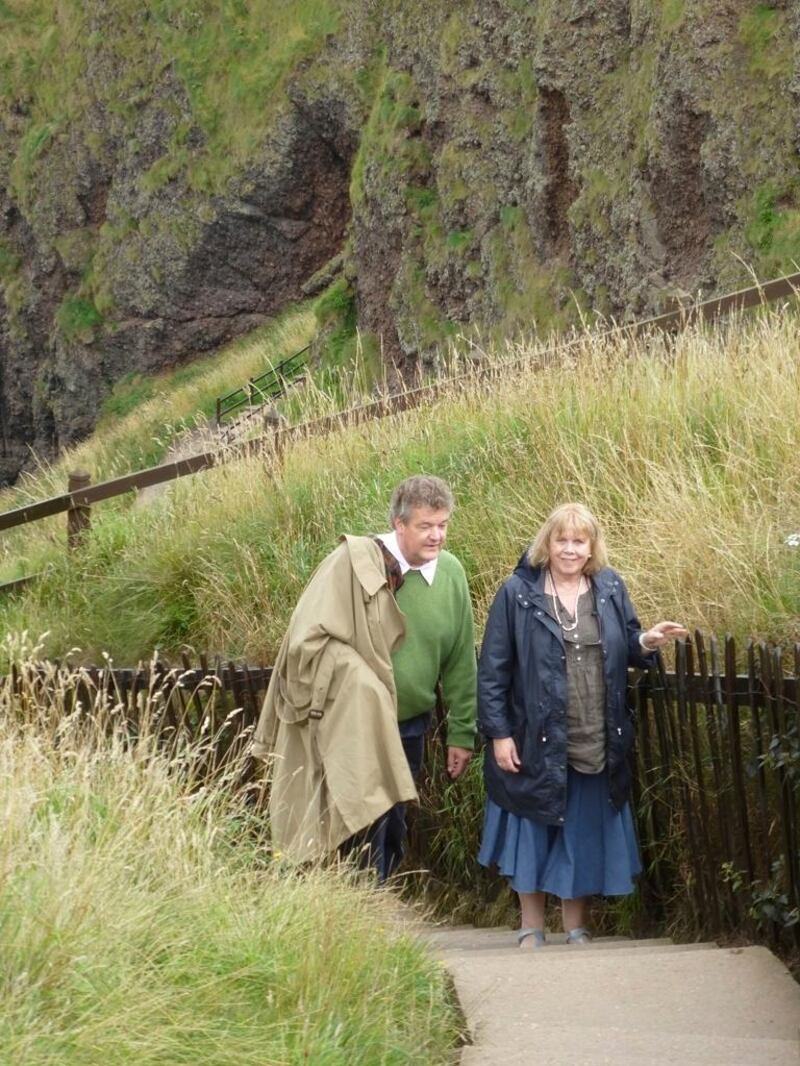Francis Matthew, former editor at large of Gulf News, will spend seven years in prison before being deported for killing his wife with a hammer in Dubai.
On Wednesday, Dubai Court of Appeal gave its final ruling against the longtime British resident, 63, effectively halving the court's previous sentence of 15 years.
Matthew beat his wife, Jane, to death with a hammer in their Umm Suqeim home in July 2017. He was arrested after reporting his wife's death as related to a robbery at their three-bedroom villa.
During police questioning, he admitted to killing her because she called him a "loser" after he told her they would have to move to a smaller home due to their dwindling finances and debts of about Dh1 million.
In March last year, Matthew was sentenced to 10 years in prison, after Dubai Criminal Court changed the charge against him from premeditated murder to a fatal physical assault.
Jane's brother, Peter Manning, told The National at the time that the family was devastated by the overturning of the murder conviction.
“Matthew, and all of us, can never be excused of killing someone just by claiming they ‘provoked’ us by mere words,” said Mr Manning.
“Carrying a hammer along two corridors before hitting Jane when she was lying down on the bed shows very clear and deadly intent.”
In October, Matthew's sentence was increased to 15 years by Dubai Court of Appeal, after he was convicted of premeditated murder on the strength of evidence that apparently showed he had intended to kill his wife.
Earlier this year, it seemed likely that Matthew could only serve two years in jail after Jane's father – one of her two legal heirs – died.
Matthew's lawyer, Ali Al Shamsi, told judges that Jane's only surviving legal heir, her son, had previously signed a waiver dropping criminal charges against his father. This meant all private charges against him had been dropped but that public law – the right of government law against an accused – was still applicable.
In UAE law, if the legal successors of a victim drop charges and waive their private rights, the court is still obliged to impose a penalty against the accused under public law – but it will be a shorter term.
The minimum sentence for murder in the UAE is 10 years in jail.
But “when a legal heir of a victim waives their private right in the criminal case, the sentence expected to be issued, based on the public right of the law, is almost up to two years,” said Musaab Al Naqbi, Matthew’s second defence lawyer.
The length of the sentence remains up to the discretion of the court, however.
The Court of Cassation, which checks the legal proceedings of a case rather than its content, reviewed the case in December last year. Judges said they found a procedural error and ordered the case be heard at the appeal's court again but by a new panel of judges.
On Wednesday, the new panel sentenced Matthew to seven years in prison followed by deportation but did not disclose the conviction.
This will not be the final step in the proceedings, however, as Matthew's defence lawyer and prosecutors have 30 days to ask for the case to be reviewed by the Cassation Court again.
Judge Ayman Abdul Hakam, former head of Dubai's One Day Court, said that, at this stage, if the case is seen by the Cassation Court for a second time, the court's judgement will be final.
"If both sides take the case to the Cessation Court, the judges will not only look into the legal procedures but also into the circumstances of the crime and the charge and issue a verdict that will be final."








